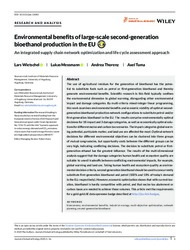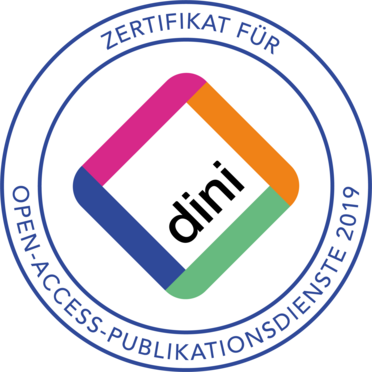Environmental benefits of large‐scale second‐generation bioethanol production in the EU : An integrated supply chain network optimization and life cycle assessment approach
Wietschel, Lars; Messmann, Lukas; Thorenz, Andrea; Tuma, Axel, 2020: Environmental benefits of large‐scale second‐generation bioethanol production in the EU : An integrated supply chain network optimization and life cycle assessment approach. In: Journal of Industrial Ecology, DOI: 10.23689/fidgeo-4043.
 |
Dokument öffnen: |
The use of agricultural residues for the generation of bioethanol has the potential to substitute fuels such as petrol or first‐generation bioethanol and thereby generate environmental benefits. Scientific research in this field typically confines the environmental dimension to global warming, disregarding other environmental impact and damage categories. By multi‐criteria mixed‐integer linear programming, this work examines environmental benefits and economic viability of optimal second‐generation bioethanol production network configurations to substitute petrol and/or first‐generation bioethanol in the EU. The results comprise environmentally optimal decisions for 18 impact and 3 damage categories, as well as economically optimal solutions for different excise and carbon tax scenarios. The impact categories global warming potential, particulate matter, and land use are affected the most. Optimal network decisions for different environmental objectives can be clustered into three groups of mutual congruencies, but opportunity costs between the different groups can be very high, indicating conflicting decisions. The decision to substitute petrol or first‐generation ethanol has the greatest influence. The results of the multi‐dimensional analysis suggest that the damage categories human health and ecosystem quality are suitable to unveil tradeoffs between conflicting environmental impacts, for example, global warming and land use. Taking human health and ecosystem quality as environmental decision criteria, second‐generation bioethanol should be used to concurrently substitute first‐generation bioethanol and petrol (100% and 18% of today's demand in the EU, respectively). However, economic optimization shows that with current taxation, bioethanol is hardly competitive with petrol, and that excise tax abatement or carbon taxes are needed to achieve these volumes. This article met the requirements for a gold‐gold JIE data openness badge described at http://jie.click/badges.
Statistik:
ZugriffsstatistikSammlung:
Schlagworte:
bioeconomyenvironmental benefits
industrial ecology
multi‐objective optimization
network planning
second‐generation bioethanol
This is an open access article under the terms of the Creative Commons Attribution‐NonCommercial License, which permits use, distribution and reproduction in any medium, provided the original work is properly cited and is not used for commercial purposes.

